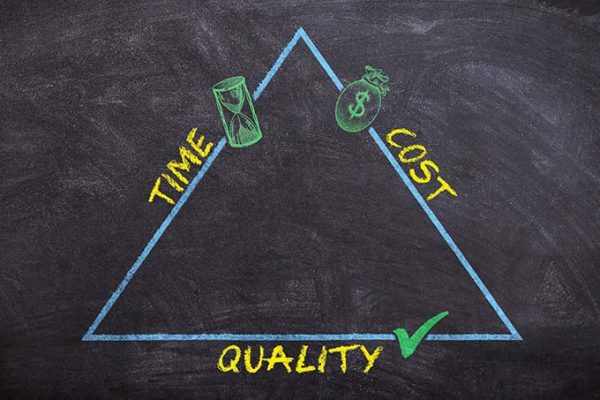I looked at the cost of a three bedroom house on the periphery of Central London, I explored the funding options (you could get 100% mortgages in those days), I found out about the tax implications (interest on a loan was a tax deductable item), weighed up the income options (renting it out) and even got some estimates to work out the cost of repairs and maintenance costs (also tax deductable).
So, after all that I decided to go ahead. It all stacked up and after 15 months of being fully rented, and making a few improvements, I sold the place and made a capital gain of 520%. Bingo! Then I did it again.
The point is, if I hadn’t done all that research I might well have missed my chance. I would have had no way of knowing if the plan would succeed. As the old saying goes; If you can’t measure it, you can’t manage it.
We’re all in business for several reasons; to make a living, to make a profit, or perhaps a work life balance. To do this constantly over time, you need to make lots of good decisions. To be able to make good decisions, you need to base them on good information. To get that information, you need to be attentive and thorough. Then you need to be prepared to listen to what you’ve learned. If you don’t quantify the basis of your decision, it will almost certainly be a guess.
In most businesses, there are a number of issues that can be quantified. If they can be quantified, they can be measured. If they can be measured they can be managed. If they can be managed they can be improved. Then if they can be improved you can have a more profitable business. It’s vital that you understand the value of good data in your business.
Think about what quantifiable data you can include in your Business Plan:
- External Market Data, Customer needs
- Internal Metrics, Financial
- Market Data Size, geography, dynamics
- Consumer Data Demographics
- Competition Pricing, availability, USP, service and so on
- Metrics Marketing, Sales, Financial, Social Media, Personnel
- Financial Cash flow, Profit and Loss, Balance Sheet, Monthly Forecast
- Review/Adjust Weekly operational adjustment (tactics), monthly review
- Budget performance Look at your own numbers and monitor your progress. Constantly.
It’s all about doing your homework. Collect your data, collate it, analyse it, understand it, interpret it, apply the results and adjust your business model accordingly with a regular review process.
Take control of your business and make decisions based on quantifiable data. That house in London taught me the value of research.
Make sure you don’t miss out on growth by guessing your way to failure.
Regards,

Robin Martin
P.S. This article is part of my Secrets of Success series, aimed at helping business owners and entrepreneurs with some of the key components of business success. The insights I wish I’d had at the start of my business career. I hope that by passing on these little gems of knowledge I can give you some support and help you along the pathway to growth and prosperity.







